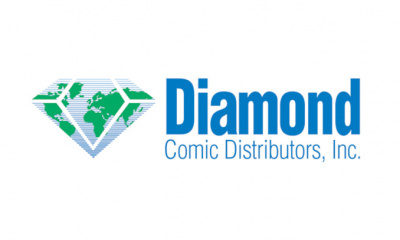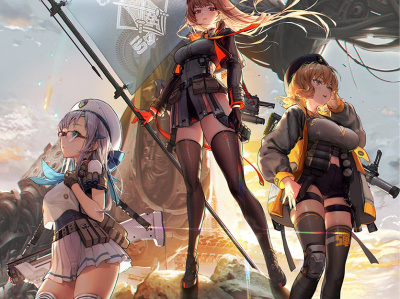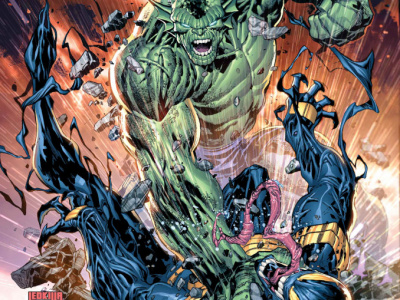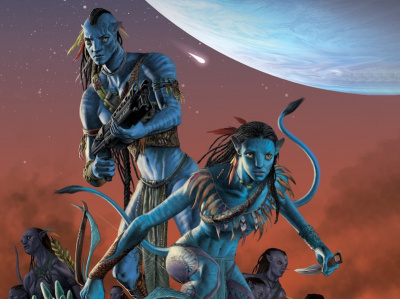Ground Zero is a two-store multi-category pop culture retailer in Mobile, Alabama that carries comics, games, DVDs, magazines, miniatures, some toys, and some board games. We talked to Tom Ray, a partner in the operation, about the game events they run at their main store, which has 3000 total square feet, with 1800 square feet of gaming space. This space gives them the ability to host up to 100 players for game events. They are often running multiple events at the same time, and run a total of about a dozen events a week. Ray not only helped us understand how Ground Zero runs successful events, he also opined on product supply and other topics in the industry.
How do you characterize your store?
(Laughter) That's the hardest question I have to answer. It's a comic store and game shop. For somebody that doesn't understand what that is, I just say that it's a retail hobby store.
Do you carry categories other than comics and games?
We carry DVDs, magazines, miniatures, some toys, and some board games.
What kind of events do you run?
We host gaming events every week and we try to run sanctioned events for those companies that provide tournament and league support. And we usually sanction our events. We also have roleplaying; but we run 10 or more events every week.
Do you also do demos?
We had, at one point, scheduled demos, but they didn't work out quite like we wanted. We have a demo team consisting of about four of our customers that go with us to local conventions, but also our staff is trained. They know how to play every game we sell, and can give a demo to a customer at any time, and I really think that helps push product.
If somebody walks into the store and shows an interest in a game, 'Oh, Warhammer, I didn't know there was a card game,' then whoever's behind the counter can pick up the demo deck from back there and show them how to play and they usually buy if they're really interested.
Who runs your events--employees, volunteers, or both?
Both. One of the storeowners and the manager are volunteers for different companies; I'm a volunteer for Upper Deck. And some of our customers are volunteers, or part of their organized tournament structure, they're judges, so we're covered. We have regular customers that want to run tournaments, so we help them get whatever they need from whatever company makes whatever game they want to play, like Dragon Ball Z, for instance, we'll help them get their judge number and everything so they can run tournaments for us.
You mentioned DBZ. I'm looking at the schedule on your Website and see a variety of DBZ events. Talk a little bit about different formats: constructed, league, sealed....
League is new. They just started their League program and we just got our League kit, so I can't really say that much about how that's going to go, other than to say that we've had a lot of interest in the League since they posted the information on their Website
We have two tournament types -- sealed and constructed. A sealed event somebody will come in and for a set price, $15 to $18 depending on the product (which is a discount price), they'll get a starter and three boosters, sit down, build a deck out of those cards and play. It's actually for me a more fun tournament type than a constructed deck because it gives those people that don't have hours on end to spend building decks a chance to even the playing field because you play with what you pull out of the decks.
A constructed deck is just that. Most people have decks that are ready for the game and they bring their decks and play them. We don't usually do a deck check unless somebody brings up that a card's banned or restricted or whatever, but we really don't have problems with that because most of our customers understand the rules and abide by them.
For sealed tournaments you charge a fee that includes product, and on the constructed tournaments there isn't any fee?
Right, and the product that they get [with the sealed deck tournament fee] is discounted off what you'd get if you just walked into the store. And for games that the company doesn't provide support, we'll do pay tournaments, $5, and all of that money goes back to the customers at the end in prizes [of store credit]. So it's more like guaranteeing sales than it is charging for an event.
Tell us about how you get manufacturing support and whom you find the best to work with?
To get support, you've got to get through all their hoops (depending on the manufacturer); I'm sure you're aware of some of them. Score, for instance, has paperwork you have to fill out before a tournament to let them know that it's scheduled so they can send you prizes. Some companies, Decipher and Score for instance, you've got to send them results from the tournaments so you can keep getting support. We've seen this a lot locally where a new little store will open up and they'll get loads of prize support from a company that doesn't have any verification system in place and then you run out to the flea market on Saturday and there it is for sale because they didn't sanction their tournament.
I think the companies have gotten a little smarter now. Some of them go a little overboard, Upper Deck for instance with Yu Gi Oh with their tournament league structure. The hoops you have to jump through, it's just crazy. On the other hand it's nice to have that aspect of it--if your tournament is scheduled on the company's Website it really makes a difference. These kids do check that and they do come to an event they'll find there. We do get phone calls and they do show up for it.
Who's better to work with? Some are better and some are worse. None are too difficult. Wizards of the Coast is probably one of the harder ones to deal with just because they've got such a bureaucratic red tape structure. You've got to send product back if it's not used; it's kind of a pain to deal with.
What's the relationship in your store between running events and sales?
There's a definite, distinct relationship. I can't give you a number, but there's a distinct increase in sales when we have any type of event, because people come to play these games and when they're here they'll buy packs and boosters and starters and we sell drinks and snacks. We have people come and stay all day just because we have events running. They wouldn't be here otherwise.
You sell drinks and snacks. Is that an important part of making the events profitable, or just a nice little extra?
You wouldn't have to have them to make it profitable but it's a nice extra. When you've got sixty folks running around your store you want to keep them in your store as long as you can. If they don't have to run down the street to get a Coke, or a sandwich, or a candy bar or something they're going to be in the store that much longer. And the longer they're in the store they more they're going to buy. If they're not there they're not going to buy anything. So the idea would be to keep them there as long as you can.
Some games, like Dragon Ball Z, have products in multiple categories. There are the games, comics, collected comics, toys, DVDs. Do you find that the same customers buy the property across categories or is it a different set of customers entirely?
Not entirely a different set of customers but in general you don't see the gamers buying the DVDs or the videos. Some do, but in general, no. Same thing with the comics and the trades. People that buy those don't buy the game, there's not a direct link. The exception to that is the toys -- especially Dragon Ball Z. They put out several sets of toys that have promo cards in them. The gamers will buy those. I'm not sure if they're buying them for the figure or the card but you do see a lot of the gamers buying those.
You do RPG events as well, which are not as common as CCG events. How do those work for you?
Do you want me to tell you whey they're not as common? You don't make any money off RPG events.
Once you sell the book you're done, right?
Once you sell the book you're done. The exception to that is, and this is kind of unique, my partner came up with an RPG league and it's run just like a card game league. And people have really responded to it very, very well. In it, we run different games every week. We have a group of four or five gamemasters and they'll run different games. This week they'll run All Flesh Must Be Eaten, and next week it will be D&D and the week after that it will be Star Wars, Star Trek, you name it.
We just started this a few weeks ago and we have over 20 people that have participated so far. That league is just like a card game league -- they pay every game and then that money goes back in prizes. Again it's just like guaranteeing us sales.
Because the prizes are product, not cash back?
It's store credit. If 20 people show up and pay $5 that's $100 in sales you've just guaranteed yourself. And they'll usually buy something else along with it. Nobody ever just uses his store credit. So that's actually worked out really well. There's a Dragon Ball Z Roleplaying Game too, by the way.
Yeah, the R.Talsorian. How did that do for you?
It did really well--sold a lot of it but I can't get it any more. That happens a lot. I haven't been able to get the books for it. That would be one that I would run in my league and we would have people play if I could get the books [note -- the books are still in print according to the R. Talsorian Website]. From the distributors' side I can't blame them. If they get something in like that and it doesn't sell very well, that's really a specific kind of product I can't imagine they wouldn't order any more.
On something like Dragon Ball Z, do you see a connection between the exposure it gets on television and sales in your store in any of the product categories?
Yes
Some categories, all?
All. And you can't limit it to TV, you have to say media exposure. Lord of the Rings is a prime example. Every kid in school has seen that series of books, and then here comes the movie, and the movie's shoved in everybody's face for a month so you see it at Burger King or whatever restaurant is doing the promotion. So that's still a real hot-selling game, and I think that's part of the reason why.
If you took that same game mechanic and put 'Alien Invaders from Mars' on it, it wouldn't work, but the license really does go a long way to push a product. Yu Gi Oh is the same way. Upper Deck thinks they're the king of the world; it's the license that's pushing that product as much as anything else. It's certainly not the availability of the product, that's for damn sure.
What are the keys to success in running game events?
The top thing that we've seen that sells games is if 'I' play the game, and I use that 'I' in a collective sense, meaning me, my partner, store staff. If they play the game, I'll sell it. If they don't it doesn't matter how good the game is, it's going to be real hard to build a following.
Is that because it's an endorsement?
I guess so. A game shop, a comic shop is not like Wal-Mart. People are not coming here to shop. They're coming here to hang out, they want to be accepted and to be part of a group. It's the behind the counter philosophy. We don't let people behind the counter. But they all feel like, 'I'm a good customer, I can go behind the counter if I need to.' If they can play something with the guy that works behind the counter, they'll play it every time. It doesn't matter what the game is. You can send me any game, and I'll guarantee you that I can get it going in my store if we, the staff and ownership, play it.
The second thing is the availability of a product. Don't try to get something going that you can't sell. That's the whole reason we're in business to start with, is to make money. I'm sure you've probably heard this from a million people, Yu Gi Oh is great and I'm making a little money off it, but nowhere near what I could be because I don't have any product to sell. And it's really more frustrating than anything when people are interested in a game and they come in and they can't buy it.
Are you getting boosters but not starters?
No, no boosters at all. Today one of my distributors called and said he was going to have starters in a few days. I've been out of starters for two or three weeks. I don't even want to calculate how many sales I've lost on Yu Gi Oh because I probably get twenty calls a day. 'Do you have Yu Gi Oh cards?' 'No, sorry.'
See 'Ins and Outs of In-Store Gaming Part III' for a Midwest retailer's experience.







